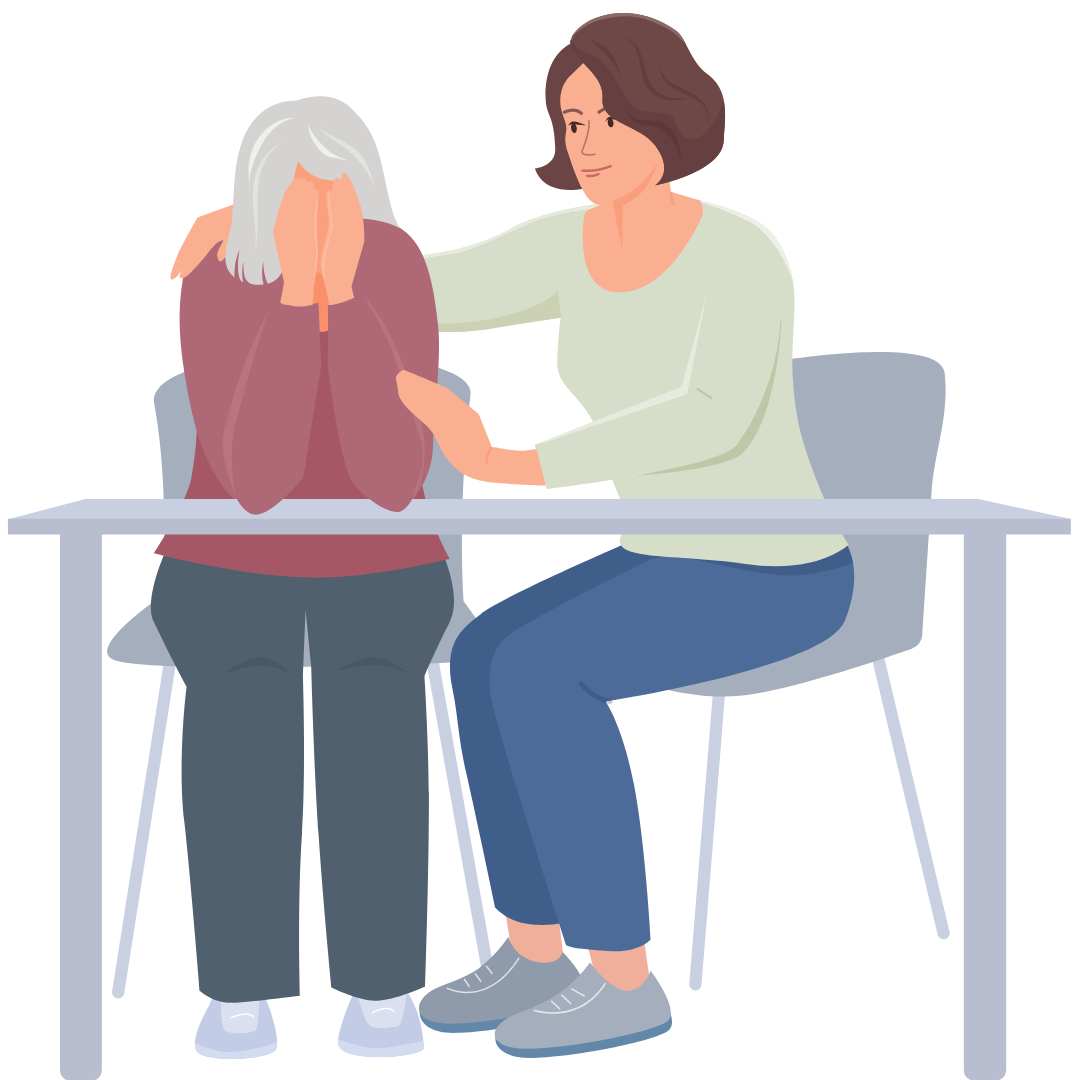Depression Research Study
Researchers at New York University and the Nathan Kline Institute are partnering with older adults who are currently experiencing symptoms of depression to learn more about the link between depression and Alzheimer’s disease.

Fast Facts

Diagnosed with or Experiencing Symptoms of Depression

Ages 60+

Compensation Provided

Conducted in New York
Study Background
People with depression are significantly more likely to develop Alzheimer’s disease. Our researchers seek to understand why.
The purpose of this study is to find out if reducing depressive symptoms with an antidepressant also improves levels of proteins associated with increased risk for developing Alzheimer’s disease (AD). The study will target individuals 60 and older with major depressive disorder. It will compare the FDA-approved SSRI antidepressant escitalopram with a placebo.
This research will contribute to knowledge about potentially modifiable risks for the prevention of AD in depressed individuals, who are at especially increased risk for this disease. Help researchers in this field and join our research study today!

Study Background
People with depression are significantly more likely to develop Alzheimer’s disease. Our researchers seek to understand why.

The purpose of this study is to find out if reducing depressive symptoms with an antidepressant also improves levels of proteins associated with increased risk for developing Alzheimer’s disease (AD). The study will target individuals 60 and older with major depressive disorder. It will compare the FDA-approved SSRI antidepressant escitalopram with a placebo.
This research will contribute to knowledge about potentially modifiable risks for the prevention of AD in depressed individuals, who are at especially increased risk for this disease. Help researchers in this field and join our research study today!

Additional Information
The purpose of this study is to test if a reduction in depressive symptoms, in response to treatment with an antidepressant, improves levels of certain proteins which have been associated with increased risk for the development of Alzheimer’s disease.
You may qualify for this study if you meet the following criteria:
Inclusion Criteria:
- Ages 60+
- Diagnosed with or experiencing symptoms of depression
- Medically stable and willing to undergo an MRI (no metal in the body, no claustrophobia)
- No other major psychiatric conditions (e.g., bipolar disorder, schizophrenia)
- Have normal hearing an normal-to-corrected vision
- Willing to undergo Lumbar Puncture procedure
- Willing to have blood drawn
- No history of brain tumor, MRI evidence of brain damage, or brain disease (e.g., hydrocephalus)
- No serious neurological disorder (e.g. Parkinson’s, seizure disorder)
- No medically unstable cardiac, pulmonary, endocrine or hematological conditions
- Not taking fluoxetine
- Do not have a poor tolerance to or response to escitalopram (Lexapro)
After completing a phone screen, participation involves:
3 Screening Visits
- Informed consent, clinical evaluation, vital signs, physical & neurological exams, EKG, and cognitive scales
- Routine laboratory tests, structured interview, clinical assessments
- MRI scan and clinical assessment
Washout period
If eligible, under the supervision of the study doctor, participants will enter a 2- week washout period during which they stop their current antidepressant treatment. The study coordinator will keep in contact throughout to assess symptoms and side effects.
2 Baseline Visits
- Lumbar puncture and blood draw
- Clinical assessments, cognitive scales, and receive either the study medication or a placebo
Treatment Period
- Participants take a daily dose of an FDA-approved medication for 8 weeks
- In-clinic visits occur at weeks 2, 4, and 6 after the baseline. These include clinical assessments, vital signs, dispensing the study medication, and a blood draw at week 4 only.
- Safety phone calls occur at weeks 1, 3, 5, and 7 after the baseline. These include a clinical assessment and asking you how the study is going.
End of Treatment Visit
- Clinical assessments, cognitive scales, vital signs, physical & neurological exams, EKG, blood draw, and lumbar puncture
Post Treatment
- 1 week after the treatment is complete, participants undergo a safety evaluation in-person or via phone
- Clinical assessments and assessment of adverse events
This study is a double-blind randomized study. This means, like flipping a coin, you will be assigned to take either the antidepressant Escitalopram, or the placebo. The placebo looks just like Escitalopram but contains no medicine, also known as a “sugar pill”. There are no special requirements or criteria to be in either group. You will have a 67% chance (or 2 out of 3) of being assigned to escitalopram treatment and a 33% chance (or 1 out of 3) of being assigned to placebo. During this study, you may get the placebo instead of the treatment drug escitalopram.
There are two study sites, one at NYU Langone Health Center in NYC and one at Nathan S. Kline Institute in Orangeburg, NY. You will be enrolled at the site that is most convenient to you.
If you decide to take part in this study, you will need to visit study sites (NYULMC or NKI) 10 times over the course of approximately 5 months. The time needed for each visit will vary depending on which assessments need to be done.
Compensation is provided for participation in this study.
There is no cost for you to participate in our research study.
